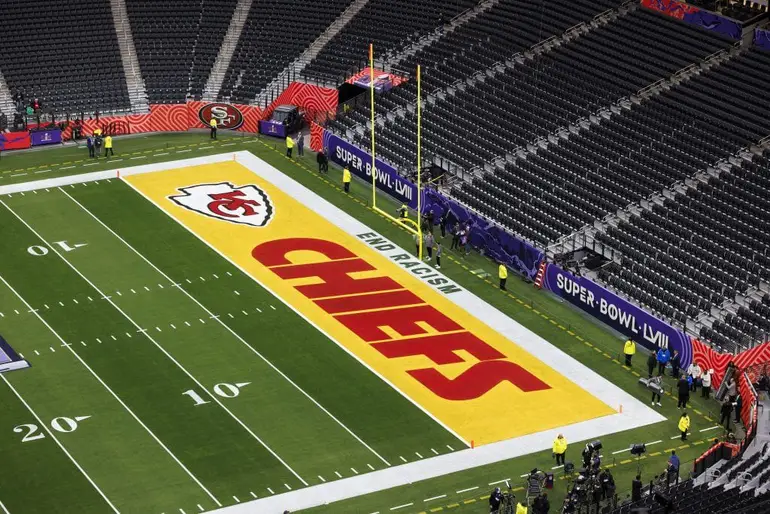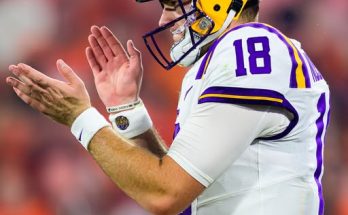In a significant shift ahead of Super Bowl LIX, the National Football League (NFL) has decided to remove the “End Racism” signage from the end zones, a message that has been prominently displayed since 2020. This move has sparked widespread debate, with discussions focusing on the league’s commitment to social justice, the influence of political dynamics, and the broader implications for diversity and inclusion initiatives within professional sports.SB Nation+1Resist The Mainstream+1SB Nation+1
The Genesis of “End Racism” in the NFL
The “End Racism” message was introduced by the NFL at the start of the 2020 season, following a period of intense social unrest and nationwide protests against racial injustice, notably after the tragic death of George Floyd. This initiative was part of the league’s broader “Inspire Change” platform, which aimed to address systemic racism and promote equality. The end zone inscriptions served as a visible testament to the NFL’s stance against racism and its support for players advocating for social justice.People+2Advocate+2New York Post+2
The Decision to Remove the Message
As Super Bowl LIX approaches, reports have emerged that the NFL will replace the “End Racism” message in the end zones with new phrases: “Choose Love” and “It Takes All of Us.” NFL spokesperson Brian McCarthy stated that these changes were made in light of recent national tragedies, including terrorist attacks and natural disasters, suggesting that the new messages aim to promote unity and collective healing. This adjustment marks the first time since February 2021 that “End Racism” will not be featured during the Super Bowl. Sports Logos News+14Cultura Colectiva+14WCSX+14NBC Sports+2The Beaverton+2People+2The New Yorker+3People+3WCSX+3
Political Context and Implications
The timing of this decision has raised questions, particularly given the current political climate. President Donald Trump is set to attend Super Bowl LIX, making him the first sitting president to do so. His administration has been known for its critical stance on diversity, equity, and inclusion (DEI) programs, with efforts to dismantle such initiatives. Some observers speculate that the NFL’s move to alter its end zone messaging may be an attempt to avoid political controversy or backlash. However, the league has not officially linked the change to political pressures. The Guardian+1People+1The Guardian+1
Reactions from the Public and Stakeholders
The NFL’s decision has elicited a spectrum of responses. Critics argue that removing the “End Racism” message could be perceived as the league retreating from its commitment to combating racial injustice, especially during a time when such issues remain pertinent. They contend that the original message directly addressed systemic issues, whereas the new slogans, while positive, are more generalized and less confrontational.
Conversely, supporters of the change believe that “Choose Love” and “It Takes All of Us” are inclusive messages that resonate with a broader audience, especially in the wake of various national tragedies. They suggest that these phrases can foster unity and collective action, aligning with the league’s intent to inspire positive change.
The NFL’s Ongoing Commitment to Social Justice
Despite the alteration in end zone messaging, NFL Commissioner Roger Goodell has reaffirmed the league’s dedication to diversity, equity, and inclusion. The “Inspire Change” initiative continues to be a cornerstone of the NFL’s efforts, supporting various programs and partnerships aimed at addressing social inequalities. The league emphasizes that the change in on-field messaging does not signify a reduction in its commitment to these causes but rather reflects a response to the current societal context. The New Yorker+3New York Post+3People+3New York Post+2Advocate+2People+2
Historical Context of Social Justice in the NFL
The NFL’s journey with social justice advocacy has been complex and evolving. The league faced significant criticism for its initial response to player protests against racial injustice, most notably those led by Colin Kaepernick in 2016. Over time, the NFL has implemented various measures to demonstrate its support for social justice, including financial contributions to related causes and the incorporation of messages like “End Racism” on the field. The recent decision to modify this messaging adds another chapter to the ongoing narrative of how professional sports entities navigate the intersection of athletics, activism, and societal issues.
Broader Implications for Professional Sports
The NFL’s choice to adjust its social justice messaging may have ripple effects across the sports industry. Professional leagues and organizations continually assess how best to address social issues while engaging diverse fan bases. This situation underscores the challenges sports entities face in balancing advocacy with broader audience reception, especially within politically charged environments.
The removal of the “End Racism” message from the Super Bowl end zones signifies a notable shift in the NFL’s public stance on social justice messaging. While the league maintains its commitment to promoting equality through initiatives like “Inspire Change,” the modification of on-field slogans reflects the complex interplay between advocacy, public perception, and political context. As the NFL continues to navigate these dynamics, its actions will likely influence broader discussions on the role of professional sports in societal issues.



